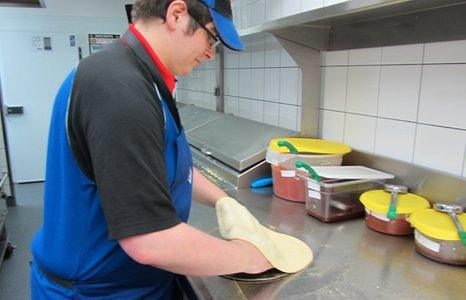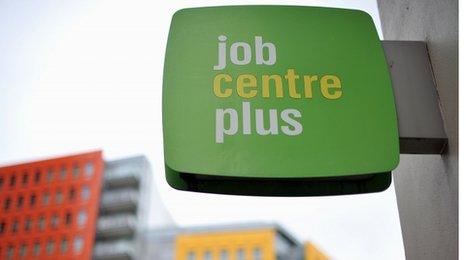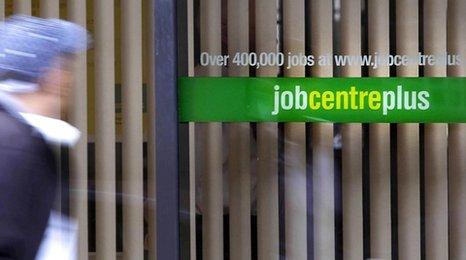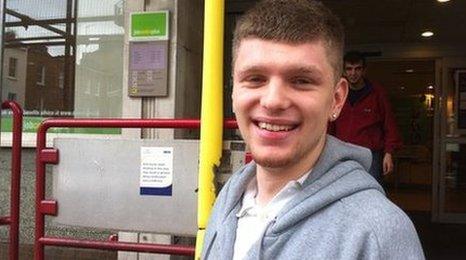Young part-time workers 'left with no choice' on jobs
- Published

Nineteen-year-old Jack Doyle juggles two part-time jobs
The number of young people being forced into part-time work because they cannot find a full-time job has almost doubled since 2008, according to official figures seen by Newsbeat.
Nineteen-year-old Jack Doyle is getting ready for the rush at a takeaway on the outskirts of Northampton.
"I had been out of work for a couple of months and it was just depressing," he said
"This might not be the best job around but it's a pride thing for me. I just don't want to be on benefits."
Newsbeat listener Jack is one of the 1.4 million 16 to 24-year-olds in the UK in part-time employment.
He works as many hours as he can making pizza, juggling that with shifts behind the bar at the local cricket club.
"If you can't get a full-time job then at least you have some money coming in," he said.
"It helps with your confidence and it's always easier to find work if you're in work."
Part-time v full-time
The number of young part-time workers who cannot get a full-time job has almost doubled in three years to a record 337,000.
Official figures show the young are much more likely to be forced to settle for part-time work than older staff.
Twenty-four per cent of part-time workers aged 16 to 24 say they cannot find full-time employment compared with 15% of those aged 25 and over.
Claire McCartney at the Chartered Institute of Personnel and Development says firms are nervous about hiring full-time staff because of the economic slowdown.
She said: "The downside to part-time and shift working can be unsociable hours, less job security and overall benefits.
"But part-time working can be a good way for younger workers to get their foot on the employment ladder, learn different skills and learn more about the world of work and future possible careers."
Nineteen-year-old Broaghan White has been working night shifts at a care home on the outskirts of Durham.
Instead of being taken on full-time she has been given a series of short-term, three-month contracts working two nights a week with overtime to top up her wages.
"If you are an independent person then you want to move out and have your own place and your own car," she said.
"Working part-time makes that difficult because you just never know how much money you have coming in each month."
Part-time benefits
Part-time workers should get exactly the same pay, rights and benefits as full-time colleagues doing the same job.
In practice it might not be that simple.
There is some evidence that part-timers get paid less per hour for doing the same sort of work and get passed over for promotions.
It is also much easier for employers to get rid of staff on short-term contracts if the economy slows down and work starts to dry up.
But for thousands of young workers, part-time can have its advantages, especially in a tough jobs market.
Less experienced staff can try out different types of work without having to make a long-term commitment to one employer or one industry.
"I really like the flexibility at the moment," said 19-year-old Jack.
In an average month he can bring home around £350 working two jobs, more than the £210 he would get on Jobseeker's Allowance.
"The money is better than being on the dole but that's just part of it," he said.
"If I was running a company, I would much rather hire someone who has been working for the last six months than someone who has just been playing their Xbox because that person is really going to want it."
- Published17 October 2011

- Published16 November 2011

- Published12 October 2011
